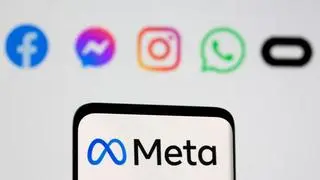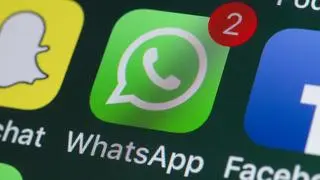Social networking major Facebook has brought its global programme to provide basic Internet services free — Internet.org — to India, making the country its sixth port of call. The initiative to ‘connect the unconnected’ was earlier launched in three countries with Airtel Africa and in two countries with Tigo.
The challenges for mass adoption of the Internet are affordability and awareness, and Facebook is looking at adding 5 billion new users through this programme. In a tête-à-tête with BusinessLine , Chris Daniels, vice-president of Internet.org at Facebook, says providing basic services free will add value to citizen’s lives and opens a gateway of opportunities. Such initiatives also help in reducing the friction between operators and over-the-top (OTT) players across the world. Edited excerpts:
How is Facebook’s Internet.org programme, which has been launched across six countries including India, faring? What are the challenges you see in these countries?
Internet.org is about ‘connecting the unconnected’ and accelerating the pace of people coming online, and the over the last year, we worked with a more than a handful of people. The results, from both consumer and partner sides, are very positive.
The biggest challenges are affordability and awareness. On affordability, people can’t simply afford the Internet, they can’t afford the data charges. On awareness, people don’t understand why it is valuable. So providing free basic services will add value to their lives and opens a gateway of opportunities. The real mission for Facebook is to make the Internet more accessible and connected.
Operators are wary that if they provide something free and as subscribers get used to getting it free, it becomes difficult to charge at a later point?
I think people depending on the Internet and Internet becoming a habit is actually a good thing as long as they are using information, communicating with people and using services. The Internet improves lives.
RCom and Facebook would now offer Internet free-of-cost to users. Who will bear the infrastructure, bandwidth and people costs?
We haven’t shared the specific financial details. In the long-term, we see more people coming on to the network and using data services.
Will this partnership for a cause iron out the differences between telcos and over-the-top players?
That’s one of the best things we have seen during the end of last year. We have really aligned our objectives with those of the top players, who have brought millions of people online over the last decade. When we created internet.org, we really had in mind operators’ objectives of bringing people online. Now are really aligned with that objective, and we will see Facebook being an excellent partner for operatives. This really works hand-in-hand to expand connectivity and reach.
Facebook has been looking at bringing in 5 billion new users to the Internet through this programme. Once you achieve this milestone, then you will have think of a business preposition?
The challenge of providing connectivity will continue. The infrastructure needs to grow and we need to break down the barriers of affordability and awareness. Unfortunately, I don’t have a timeline by when we would be able to bring in the 5 billion into the fold. But we have a long way before we are done and I haven’t put a lot of time into thinking what happens when we are done (connecting 5 billion). The Facebook is a mission driven company and we are focused on making world more connected.
Which are the other countries you are looking at expanding this programme to?
We look at the number of unconnected people and India is certainly high on that list. Bangladesh, Indonesia, the Philippines, Nigeria, Latin America and Brazil are others. This is really a global initiative and we are looking to go where there are unconnected people.
There were criticisms that Internet.org is contrary to the larger objectivity to net neutrality as a section of people have been left out?
Internet.org is a pro-access initiative and principles of net neutrality are pro-access as well. We want to bring more people online, and the principles of net neutrality are also to provide fair accesses to the Net. Overtime, we will include everyone under this initiative and bring them online.
Does this dovetail with other programmes such as the drone initiatives? What are the challenges in the Indian market?
There are several barriers to bring people online. One barrier is infrastructure. About 85 per cent of the world’s population is covered by local area networks, an exceptional job done by operators across the world. To connect the remaining 15 per cent, we really need to find technologies and that’s where we are engaging our R&D in.







Comments
Comments have to be in English, and in full sentences. They cannot be abusive or personal. Please abide by our community guidelines for posting your comments.
We have migrated to a new commenting platform. If you are already a registered user of TheHindu Businessline and logged in, you may continue to engage with our articles. If you do not have an account please register and login to post comments. Users can access their older comments by logging into their accounts on Vuukle.